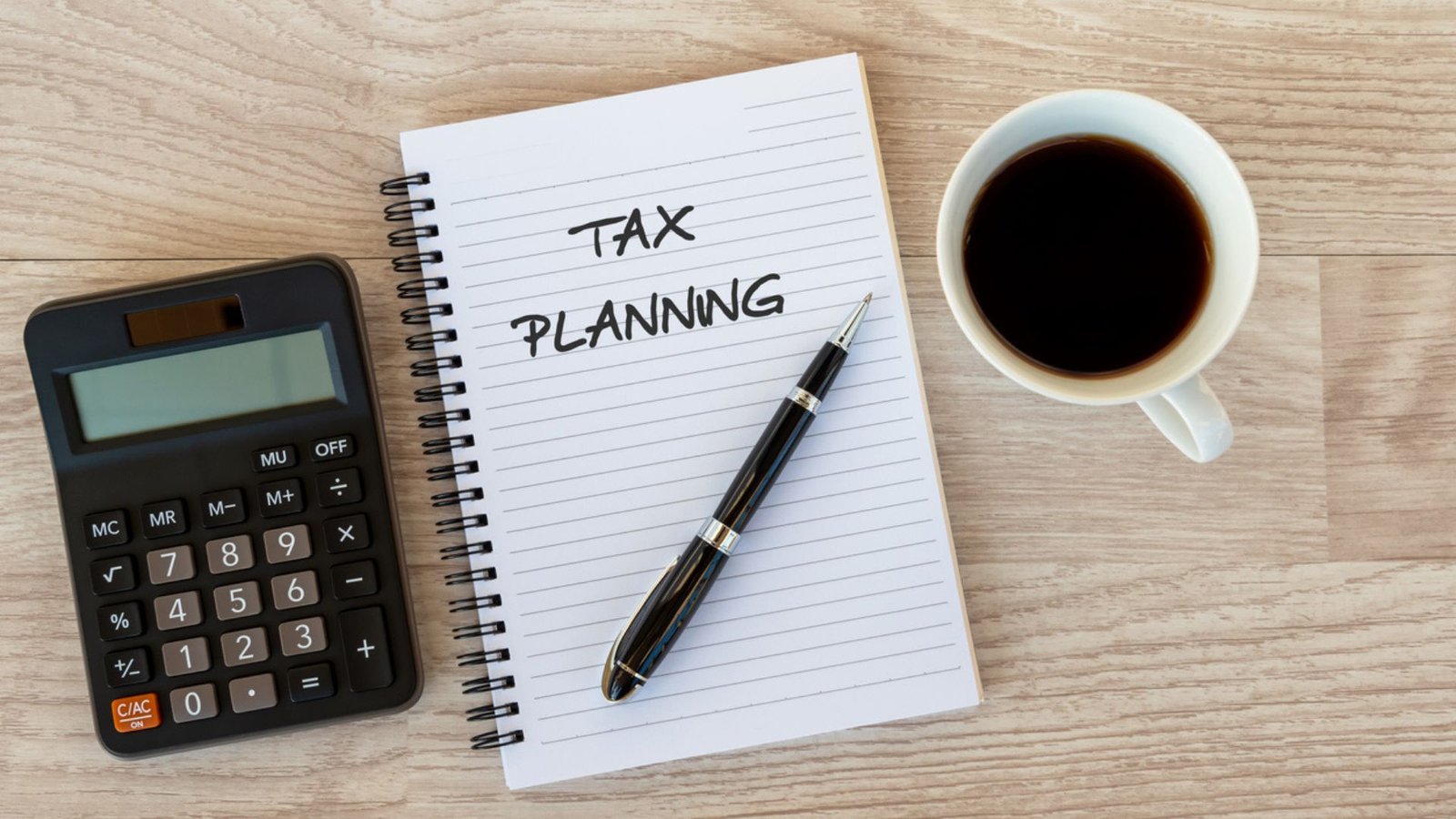Effective Tax Planning: Strategies for Maximizing Returns
Tax planning is a crucial aspect of managing your finances efficiently. By strategically organizing your financial affairs, you can minimize your tax liabilities and maximize your returns. In this guide, we’ll explore practical and easy-to-implement strategies for effective tax planning.

1. Understanding the Basics of Tax Planning
Before diving into specific strategies, it’s essential to grasp the fundamentals of tax planning. This includes comprehending the tax brackets, deductions, and credits available to you. A clear understanding of these basics lays the groundwork for effective tax management.
2. Early Planning
Proactive tax planning is far more effective than last-minute efforts. Start planning early in the year, allowing you ample time to explore various strategies and make informed decisions that align with your financial goals.
3. Take Advantage of Tax Credits
Identify and leverage available tax credits to directly reduce your tax liability. Common credits include the Child Tax Credit, Education Credits, and the Earned Income Tax Credit. Understand the criteria for each credit and ensure you meet the eligibility requirements.
4. Maximize Deductions
Explore eligible deductions that can significantly reduce your taxable income. Deductions may include mortgage interest, medical expenses, charitable contributions, and business-related expenses. Keep detailed records and work with a tax professional to ensure you claim all applicable deductions.
5. Contribution to Retirement Accounts
Contributing to retirement accounts, such as a 401(k) or IRA, not only helps secure your financial future but also provides immediate tax benefits. Contributions are often tax-deductible, lowering your taxable income for the year.
6. Strategic Use of Tax-Advantaged Accounts
Utilize tax-advantaged accounts, such as Health Savings Accounts (HSAs) and Flexible Spending Accounts (FSAs), for medical expenses. Contributions to these accounts are often tax-deductible, and withdrawals for qualifying expenses are tax-free.
7. Timing Matters: Strategic Timing of Income and Expenses
Consider the timing of your income and expenses. If you anticipate a higher income in the coming year, delay income where possible. Conversely, accelerate deductible expenses to the current year to maximize your deductions.
8. Stay Informed About Tax Law Changes
Tax laws can change, impacting your financial planning. Stay informed about updates in tax regulations, and adjust your strategy accordingly. Consulting with a tax professional ensures you’re aware of any recent changes that may affect your tax situation.
9. Efficient Investment Planning
Choose investments that align with tax efficiency. Tax-efficient investments can result in lower capital gains taxes, helping you retain more of your investment returns.
10. Explore Tax-Efficient Withdrawal Strategies
When it comes time to withdraw from your retirement accounts, implement tax-efficient strategies. A well-thought-out withdrawal plan can minimize tax consequences and stretch your retirement savings.
11. Engage a Qualified Tax Professional
Enlist the services of a qualified tax professional to navigate the complexities of tax planning. A professional can provide personalized advice based on your unique financial situation, ensuring you don’t overlook any opportunities for tax savings.
12. Keep Impeccable Records
Maintain detailed and organized records of your financial transactions, income, and expenses. Accurate record-keeping is essential for substantiating your claims and ensuring a smooth tax filing process.
13. Monitor Your Tax Withholding
Regularly review and adjust your tax withholding to avoid overpaying or underpaying taxes throughout the year. Finding the right balance ensures you don’t encounter surprises come tax season.
14. Plan for the Long Term
Effective tax planning is not a one-time event but a continuous process. Regularly reassess your financial situation, goals, and tax strategies to adapt to changes in your life and the tax landscape.
15. Explore Tax-Advantaged Investments
Look into tax-advantaged investments such as municipal bonds or tax-efficient mutual funds. These investments offer opportunities for growth while minimizing your tax burden.
16. Consider Tax-Loss Harvesting
In a diversified investment portfolio, losses are inevitable. Take advantage of tax-loss harvesting by strategically selling investments that are in a loss position to offset capital gains and reduce your overall tax liability.
17. Utilize Tax Credits for Home Improvements
Explore tax credits available for energy-efficient home improvements. Investing in solar panels, energy-efficient windows, or other qualifying upgrades can not only save you money on utilities but also provide valuable tax credits.
18. Leverage Educational Tax Breaks
If you or your dependents are pursuing higher education, take advantage of educational tax breaks such as the American Opportunity Credit or the Lifetime Learning Credit. These credits can help offset the costs of tuition and related expenses.
19. Charitable Contributions for Tax Deductions
Donate to charitable organizations to not only support causes you believe in but also benefit from tax deductions. Keep records of your donations and ensure they meet the criteria for tax-deductible contributions.
20. Explore Tax-Efficient Estate Planning
Consider tax-efficient estate planning strategies to minimize estate taxes and ensure a smooth transfer of assets to your heirs. Consulting with an estate planning professional can help structure your estate in a tax-efficient manner.
Conclusion
Incorporating these practical tax planning strategies into your financial management routine can significantly impact your overall financial success. By staying informed, being proactive, and leveraging available tools and resources, you can navigate the tax landscape with confidence and maximize your returns while minimizing your tax liabilities. Remember, consistency and early planning are the keys to long-term financial success through effective tax planning.